According to a recent article published by the Wall Street Journal, Apple is currently exploring new and innovative ways to expand the capabilities of its AirPods in order to ultimately have them working as a personal health device.
That basically means that in the nearby future, we could potentially be seeing Apple’s AirPods being used as a hearing aid, as well as an in-ear thermometer, and even as a personal posture monitor that helps users to immediately correct any sort of unhealthy posture(s).
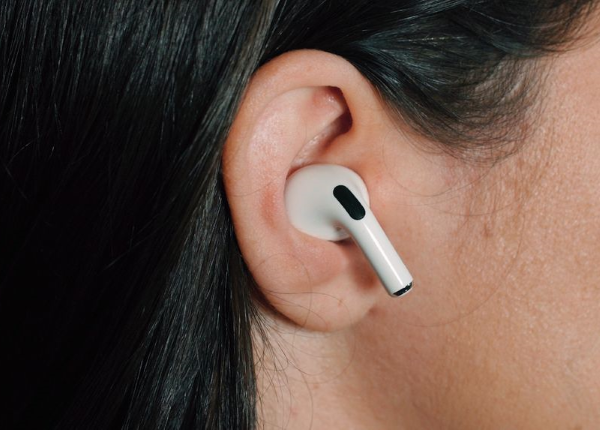
Now, it’s important to note that all of the proposed health-focused features for Apple’s AirPods aren’t expected to be released by next year (2022). Because of that, the “expected timing” for the release of all of these health-focused functionalities could easily change.
Not only that, but according to a handful of people that are familiar with the company’s plans – and in last case scenario – it is also possible that those same health-focused features might ultimately never be released to consumers.
Be that as it may, having the possibility of having Apple’s AirPods working as a personal health device would most likely only attract even more consumers to the company’s product offerings, more specifically, to its AirPods line, which already includes the AirPods, the AirPods Pro, and the over-ear AirPods Max, and as of today (October 18th, 2021), its newly-announced AirPods 3 Earbuds, which are already available for pre-ordering.
Regardless of what the company decides for all of these potential health-focused features for its Apple AirPods, let’s still discuss exactly how each of these health-focused functionalities would work, and also talk about the main benefits that each of those would provide to all AirPods users.
Apple AirPods used as Hearing Aids
First and foremost, it’s worth to mention that Apple’s AirPods already dominate the global Bluetooth headset market, as the company’s AirPods also already generated an estimated $12.8 billion in revenue just in 2020 alone, which, according to research firm Strategy Analytics, is around five times the figure of the global Bluetooth headset market’s No. 2 competitor, Bose.
More importantly, there are currently millions of people that suffer from hearing loss – which even includes many people whose impairment is less severe and choose not to treat (according to Hearing Health experts).
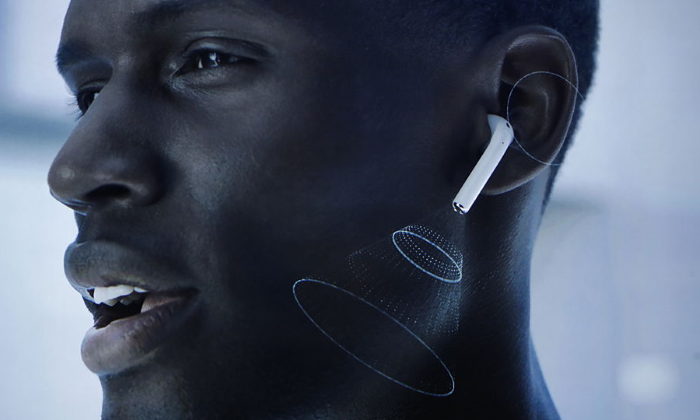
As such, if Apple does indeed decide to extend the functionalities of its AirPods to have them work as hearing aids for their users, this could potentially increase the AirPods dominance of the global Bluetooth headset market even further.
Apple AirPods used as a Posture Monitor
Now, to have the AirPods working as a portable and personal posture monitor that would continuously detect the posture of each user, the earbuds would have to use motion sensors in order to alert wearers if they’d ever be detected slouching or sitting in an unhealthy position for their body.
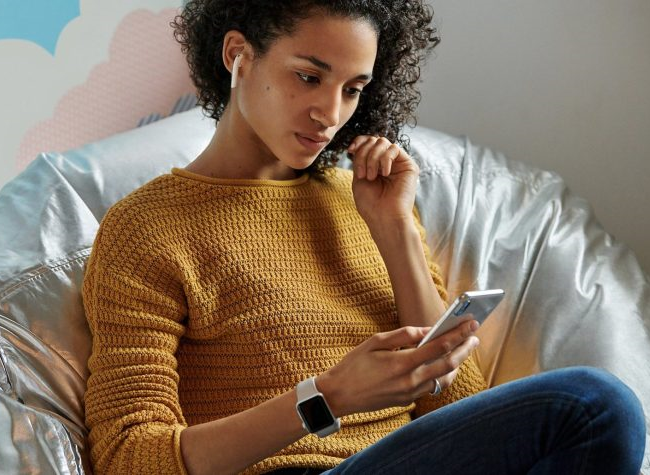
Obviously, these posture alerts would be a great addition to Apple’s AirPods, as this would help many users worldwide to improve their posture, because, as we all know, who doesn’t like to slouch here and there, especially after countless hours sitting at a desk chair while surrounded by a ton of office work.
Apple AirPods used as In-Ear Thermometers
Finally, and according to some leaked documents, the Apple AirPods could soon also be used as in-ear thermometers, as one of the suggested prototype in these documents even had the AirPods coming equipped with an integrated thermometer that would allows Apple’s renowned earbuds to check a user’s core body temperature.
This would be another great additional health-focused functionality for the AirPods, as it would allow the earbuds to quickly detect any potential fever or any potential heat stroke in order to help users avoid heat exhaustion as well as other health issues related to heat strokes (such as headaches, dizziness, confusion, loss of appetite, etc.), and perhaps, even any potential cases of hypothermia. With nowadays’ fast-paced developments to technology, the sky is the limit, truly.
POTENTIAL CHALLENGES TO RELEASE THESE HEALTH-FEATURES
Now, as mentioned before, all of the said health-focused features for Apple’s AirPods aren’t expected to be released by this upcoming year, meaning 2020, and as such, the “expected timing” for the release of all of these health-focused functionalities could easily change, and potentially speaking, these features might not even be released to consumers.
Now, since Apple’s AirPods already dominate the global Bluetooth headset market, it’s safe to say that Apple would obviously face numerous difficulties just to market its AirPods as Health Gadgets.
Marketing Restrictions due to Federal Regulations
First of all, Apple’s AirPods currently cannot be marketed as hearing aids due to some specific federal regulations that date back decades to when many hearing aids were unsafe or ineffective. To put it simply, these restrictions require any upcoming hearing aid devices to be sold through licensed hearing specialists who tune the hearing aids to the wearer’s needs.
As such, Apple would most likely require a regulatory clearance for at least this potential “hearing aid” functionality for its AirPods.
Still, not all hope is lost, as the FDA is currently working to complete safety and effectiveness rules as required by a 2017 law for a new category of over-the-counter hearing aids that consumers can tune themselves.
These upcoming and improved regulations are expected to be completed by the U.S. Food and Drug Administration some time during the next year of 2022, and that would ultimately companies like Apple, Bose and Samsung to market the sale of a new class of cheaper hearing aids directly to consumers, which could then be used to treat mild to moderate hearing loss.
On that note, it’s worth referring that Apple has already been beaten to the hearing-aid market by consumer electronics rival Bose, which is already selling an FDA-cleared hearing aid directly to consumers, for which each user can even customize the sound-settings by themselves.
Technical Challenges due to Low Battery Life
Secondly, Apple’s AirPods are most likely not suited to be used as hearing aids by people that suffer from hearing loss, and that’s mainly because they don’t yet feature all-day battery life.
While the AirPods Pro used to be the best version of Apple’s signature line of earbuds, which had a battery life that wouldn’t last you any longer than 4.5 hours for music-listening (with ANC turned On), or a maximum of 3.5 hours of battery life for Voice Calls, that’s no longer the case.
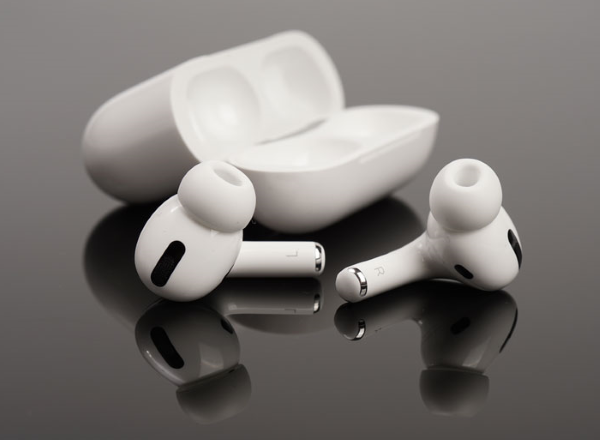
As of now, the best version of Apple’s AirPods are its newly-announced AirPods (3rd generation), which now offer users a slightly longer battery life of around 1.5 extra hours over the previous generations, as they now boast up to 6 hours of listening-time and up to 4 hours of talk time.
Still, 6 hours isn’t even a third of a day (24/3 = 8 hours), so it is fairly easy to see the problem here.
Not only that, but on top of requiring an all-day battery life, the Apple AirPods would also need to be comfortable so that they could more easily be worn for long periods of time.
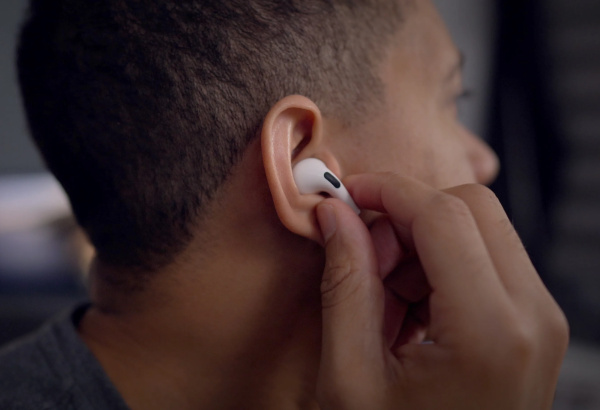
For now, the AirPods’ current design doesn’t really make Apple’s famous earbuds that practical to be used as Health Wearables that might require to be worn within your ears during an entire day.
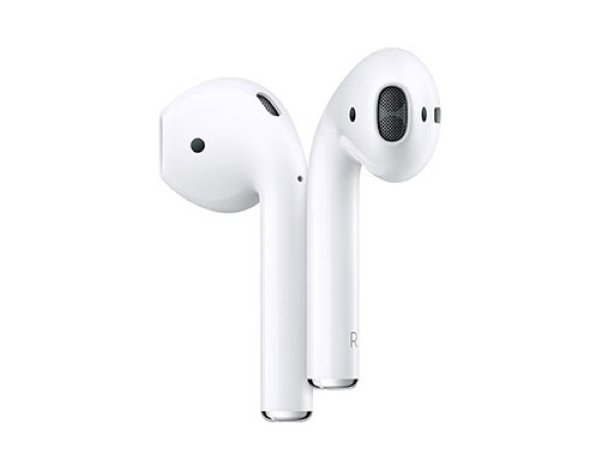
Last but not least, the AirPods should also be more easily configurable when it comes to their sound-settings so that they can ultimately be adapted to different types of hearing loss.
FINAL THOUGHTS
With all of these different challenges ahead, Apple certainly still has a long way to go before marketing its AirPods as Health Devices.
And while only time will tell what course the company will take, we at GadgetGram still hope that this situation ultimately has a positive outcome by 2022, or if anything, slightly later than that.





